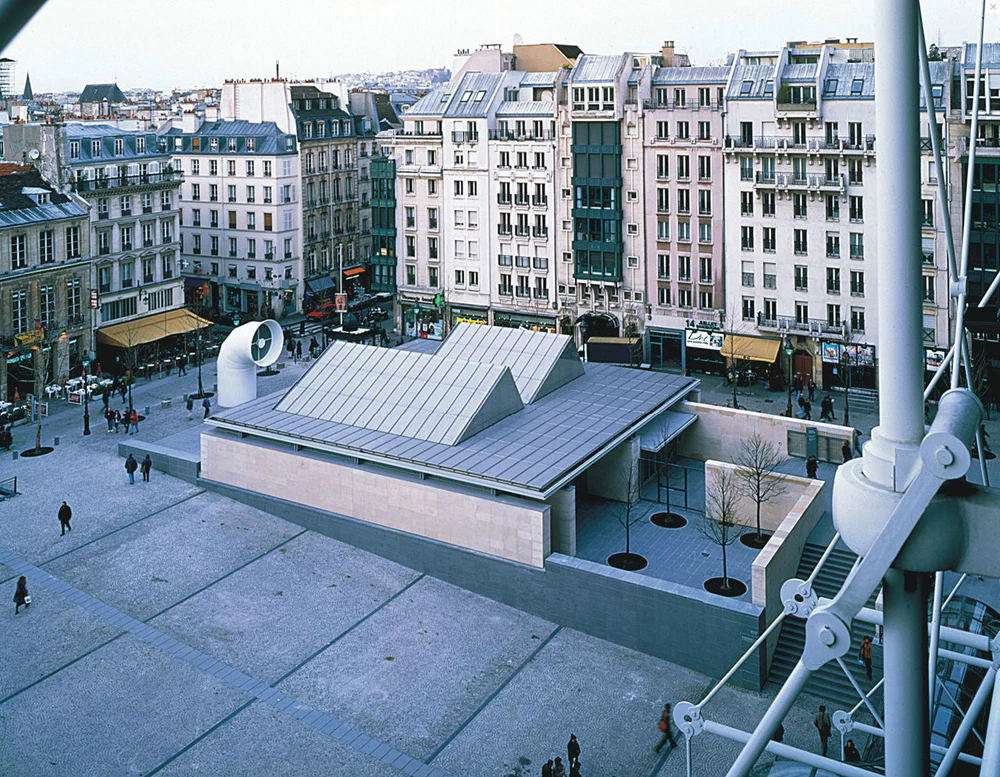Common Thread: The Home of the Lost Reservation Club
By Finlay Renwick
2025년 2월 21일

Text by Alexander Lobrano
Images by Chris Kontos
Taken from Volume 5 of Common Thread, available for free in our Savile Row and Canal St stores.
I’d studiously avoided saying the name out loud for a longtime. Instead I reacted like most parents do when asked if they have a favorite child. “No! No, I love them equally but for different reasons,” these well-meaning people usually say. This was also my answer to the question most often asked of me as a food writer who lives in Paris:
“What’s your favorite bistro?”


The October day when I finally decided I’d be willing to answer that question the next time anyone asked, I’d been living in Paris for a little over two years. This was long enough to have learned the city so well that I could map my moods and emotions to specific dishes in favorite restaurants, which is a profoundly Parisian pursuit and pleasure.
For example, the hearty but delicate stuffed cabbage at Le Florimond in the 7th Arrondissement infallibly put me in a buoyantly good mood on a cold winter night, while nothing banished Sunday blues better than the perfect golden-crusted sole meuniere in its warm shallow bath of melted salted butter at Le Dome. The mutton and beans at La Tour de Montlhery in Les Halles was the perfect steadying savory ballast against an impending night out with lots of boozing in the clubs, and no feast better prepared or celebrated a good romp in the sack more suavely than onion soup with a cap of melted cheese containing its booming onion-rich bovine broth and huge trays of freshly shucked oysters arranged on mounds of crushed ice at Au Pied de Cochon, the 24/7 brasserie in Les Halles (N.B. All of these places are still open, and my recommendations in force until further notice).


I’d just done a very odd interview with a famous fashion designer at a café in Les Halles, because in those days I was still working as a fashion writer to pay my rent and keep the papers that allowed me to live in Paris as a foreigner. The designer arrived ninety minutes late, because he was just off a flight from Tokyo. Heads turned when he entered the café in his signature broad-shouldered black leather jacket and trousers laced up the sides with a codpiece in front. He sat down, lit a Marlboro, and ordered a flute of Champagne. Then he saw me notice the bulging bandage at his right temple. “I was having sex in a sofa bed with a model last night, and the damned thing suddenly closed up like a clam shell. The bed frame hit me in the head.” I told him I was sorry about his wound. “It won’t scar and the sex was incroyable,” he said—this was Paris in the Eighties, before launching into a monologue about his next collection.


His vanity bored me, especially because I could never write about what might have made this interview interesting. Our chat ended abruptly when the designer’s sister swooped in unexpectedly to bring him home. “Not a word about this, Alec,” she said. “Just the fashion. That’s what you’re being paid to write about, the fashion, and my brother’s a genius.” I decided to walk a back to the office.
In the flat pewter-colored light created by a thick quilt of low gray clouds, Paris had a moody beauty that day, and a heavy rainstorm the night before had appliqued the city’s stone sidewalks with bronze and yellow plane and horse-chestnut leaves. I’d just reached the Place des Victoires, when it began to rain on me with no umbrella. I instantly knew what I’d do and what I wanted, black fish-net stockings burned on to firm sweet white flesh. A lashing or two of sunny yellow bearnaise sauce would make this piscatory pleasure even better, too.

“Bonjour, mon Bebe,” said Monique when I came through the heavy curtains at the door of Chez Georges at noon.
She took my coat, and I leaned towards the short sinewy blonde woman so that we could peck each other’s cheeks. Then she looked in the reservations book.
“I don’t have a reservation,” I blurted out, glancing quickly at the long narrow dining room, which looked quite full. Monique cocked her head and raised a penciled on eyebrow.
“I think you’re hungry,” she said. I nodded. “And maybe a little sad?” I felt my throat close.
I was still getting over a breakup. She picked up a pen and drew a line of black ink that ended in a flourish through a name in the
column of them in front of her. “You’re in the club now,” she said.
“Come.”


I followed her to the back of the room and slid on to the banquette when she pulled out the table for two so that I could slip in. A minute later she returned unbidden with a glass of cool white Sancerre, some sliced saucisson on a saucer, and the menu, handwritten in loopy script and then mimeographed in purple ink. Then she recited the daily specials, a lyrical gastronomic litany, which fell on my ears almost like some sort of importuning erotic poetry. Today there were sautéed ceps from the Auvergne, a pumpkin velouté, a terrine of wild duck with foie gras, a civet de sanglier (wild boar stew), a saute of free-range chicken in a sauce vin jaune (maderised wine with a sherry like finish from the Jura in eastern France) with fleshy morel mushrooms. There was also tarte Tatin, the world’s best apple dessert, which came to the table here with a crock of ivory-colored crème fraiche so thick a spoon could stand up in it.
Then I asked her, “What did you mean when you told me I’d just joined the club?”
She chuckled. “You saw what I did at the door. Poof! A lost reservation. We’ll always find a table for you here, Alexandre.” I blushed, and she left the table, giving me time to meditate on my meal. I sipped my wine with an eddying sense of well-being, because I’d just been anointed as a favorite client of my favorite bistro. Nibbling a fat glossed slice of garnet colored sausage elongated this satisfaction, too, since the disc of pork was
like some sort of carnal votive offering to the pleasures of Gallic gastronomy. And then, I struck a shoal of memory.
“Clubs are dreadful places,” my mother said after the doorman in a thick gray flannel overcoat had released her arm at the bottom of the ice-crusted steps of the bow-fronted Back Bay townhouse and we were walking in the slushy streets of Boston. We had just met a boarding-school friend of hers and this woman’s elderly father, a famous Egyptologist, at their private club for tea, because I was obsessed with ancient Egypt.

My mother’s disdain was a recurring refrain. A privileged but profoundly liberal woman, she disliked social clubs for their snobbery and was especially scathing about country clubs, most of all the one we belonged to because my father played tennis. “Sports are a dreadful waste of time,” she once said, adding, “And I can’t abide the sexual exhibitionism of country club athletics.” As a nine-year-old boy, that had given me something to think about.
My mother’s son in most respects, I decided the Chez Georges club, the one Monique had just inducted me into, was one that richly warranted an exception to maternal scorn. For one thing, this intimate little restaurant, which opened in 1964, is just so hopelessly charming, with evenly placed sconces casting a low flattering glow that makes everyone look better. Then there are the mirrors, which are interspersed between flattened Corinthian columns and which allow you to watch the room without turning around, adding a sort of spying through a keyhole drama to any meal here.
Finally, there’s the crowd, an insouciantly chic mixture of antique dealers, bankers, artists, actors, tourists, fashion designers and the occasional famous face. So it’s actually sort of flattering to be a client of this place, much less a regular.
In fact, the first time I ever ate at this bistro it was in the company of a very famous face, a certain Mrs. Julia Child, the lantern-jawed large-boned lady from Cambridge, Massachusetts who made it her mission to introduce America to the glories of Gallic gastronomy through her cookbooks and television shows in much the same way Elizabeth David did in the United Kingdom, less the television shows.

I left that meal, which starred salmon in sorrel sauce, smitten by the fish, Mrs. Child and Chez Georges. The sorrel had a sour metallic taste, like the one I imagine might fill your mouth if you kept a copper penny under your tongue for a day, and it met the fatty richness of the firm pink fish perfectly. So I went back a second time, and a third and took everyone who came to see me in Paris there, and this was how I quietly ended up having a sublime lunch alone on a rainy October day.
Monique insisted I taste the wild duck terrine with foie gras, which was as ecstatically feral as a stomp through a swamp. Then I ate sauteed cep mushrooms en persillade, which means dressed with an almost invisible veil of finely chopped garlic and parsley. Finally, I had the dish I had come for, my Chez Georges favorite–grilled turbot with bearnaise sauce, because this sauce is such a perfect cameo of the genius of French cooking, or an elegant unguent that’s sensual but subtle with a teasing wick of tarragon, that most French of all herbs, and a discrete but bracing spine of white-wine vinegar. Since the dollops of crème fraiche I’d slathered over my tarte Tatin, a sort of caramelised apple upside down tart, had left me in sort of a happy cholesterol fuzzed stupor, I didn’t say no when Monique showed up with two snifters and a bottle of Armagnac after the dining room had emptied out. It was stilling raining, and I’d already decided I wasn’t going back to the office, because a nap was the only civilised coda to the feast I’d just eaten.
“C’est belle la vie quand on a bien manger, eh?” (Life is beautiful when you’ve eaten well, right?), Monique said after she’d lit a Gauloise and taken a sip of the aromatic amber liquor.
It is indeed, especially at Chez Georges.










